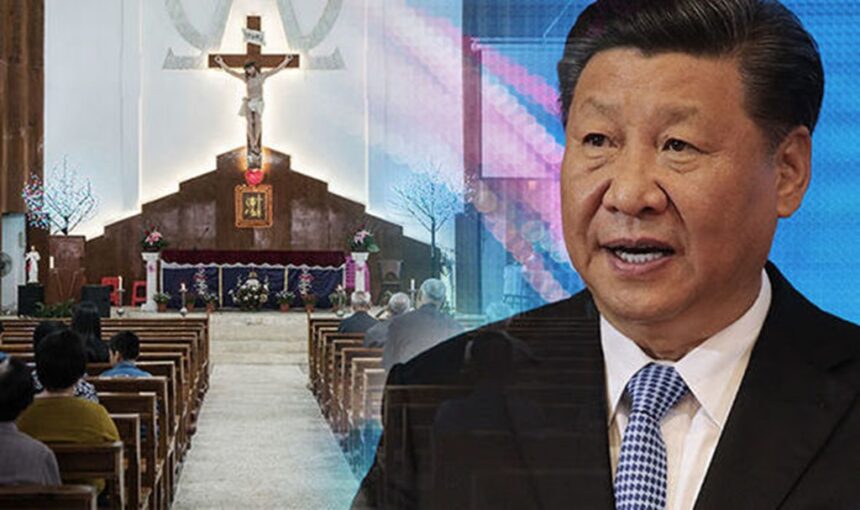BEIJING – Chinese authorities have introduced new rules guiding how foreigners can take part in religious activities while in China. Some Western news outlets, both secular and Christian, suggested these were fresh moves to keep foreign religious influence out of the country.
These measures began on 1 May, covering all foreign nationals living in or visiting China, including short-term visitors and tourists.
Are These Religious Rules New?
A closer look shows these rules are actually detailed instructions on how to carry out regulations first set in 1994. The main change is that the guidance is now more specific. The updated rules outline administration, permissions, penalties, and link up with other laws. There’s also a clear message that religious activities cannot disrupt state policies like ethnic unity.
Since 2012, China has been updating rules for religious practice. Recent years introduced regulations for online content and religious worker registration, alongside existing ones.
When the government released these rules, Chinese media explained the changes. The State Administration for Religious Affairs said the update was needed because more foreigners are coming to China, and many want to take part in religious activities. The old rules did not cover all situations, especially for group activities.
Foreigners are now restricted from the following religious activities:
- Interfering with Chinese religious groups, schools, or sites, or influencing the appointment of religious leaders.
- Setting up religious groups, offices, worship sites, or religious schools.
- Spreading extremist views, supporting extremist groups, or using religion to harm national unity, ethnic relations, religious harmony, or social order.
- Leading religious gatherings or preaching without permission.
- Recruiting Chinese followers or assigning religious leaders.
- Using religion to block the legal, education, marriage, or social systems in China.
- Making, selling, or distributing religious books, media, or propaganda.
- Accepting donations from Chinese citizens or organizations.
- Running religious education or training.
- Using the internet for illegal religious activities.
- Taking part in any other unlawful religious activity.
What’s in the New Rules?
The regulations contain 38 articles in five sections.
The first section outlines key terms, including who counts as a foreigner and what activities are considered religious. It also stresses the independence of Chinese religious groups and reminds foreigners to obey Chinese law.
The second section deals with group religious activities. The term “collective” is not clearly defined and is left to local authorities. This section explains how to register group worship and how it connects to recognized Chinese religious bodies.
Section three covers exchanges between foreign and Chinese religious organizations. It also sets out which printed or media materials are allowed and repeats the list of banned religious activities for foreigners.
The fourth section sets out responsibilities and legal consequences for government officials, foreign nationals, Chinese groups, and religious staff.
The last section lists supplementary details, including the start date (1 May 2025) and which level of local government is responsible for carrying out the rules.
How Were the Rules Created?
China has been working on more detailed religious regulations for about a decade. The first draft of these rules appeared in 2018, followed by a period for public feedback. Another revised draft came out in 2020, again with time for people to comment.
Comparing the drafts shows several changes. For example, the earlier draft’s title only covered group religious activities by foreigners, but the final version is broader. The original draft set a minimum group size of 50 people; the final version leaves the size up to local officials.
Another revision adds possible civil or criminal charges for officials who don’t carry out the rules properly. The number of articles has grown from 22 to 38.
What’s the Impact?
Reactions within China have been calm. Both Chinese and foreign residents say these rules mostly put into writing what was already happening locally. The main effect is on official religious exchanges, which now face stricter requirements and less room for local interpretation.
The rules also place more restrictions on foreign Christians wanting to meet with Chinese Christians.
For foreign-led religious groups, such as international church fellowships, the new registration and management process is now more demanding. It’s not yet clear exactly how these changes will affect daily life, work, and worship for foreigners in China.
What Should People Do?
First, it’s important to avoid saying China has banned missionaries. China has never issued visas for foreigners to do religious work, and this hasn’t changed.
Second, these rules are part of a long-term trend to tighten and clarify regulations around all religious activities in China. Anyone hoping to work or live in China needs to understand the country’s historical and political background and to respect local customs. Being allowed to live and work in China is a privilege.
Third, these rules add another layer of complexity for foreign Christians living, working, or travelling in China. It’s a good idea to keep them in thoughts and prayers as they adapt to these changes. Pray for wisdom and patience for those living out their faith under these regulations.
Source: China Christian Daily







